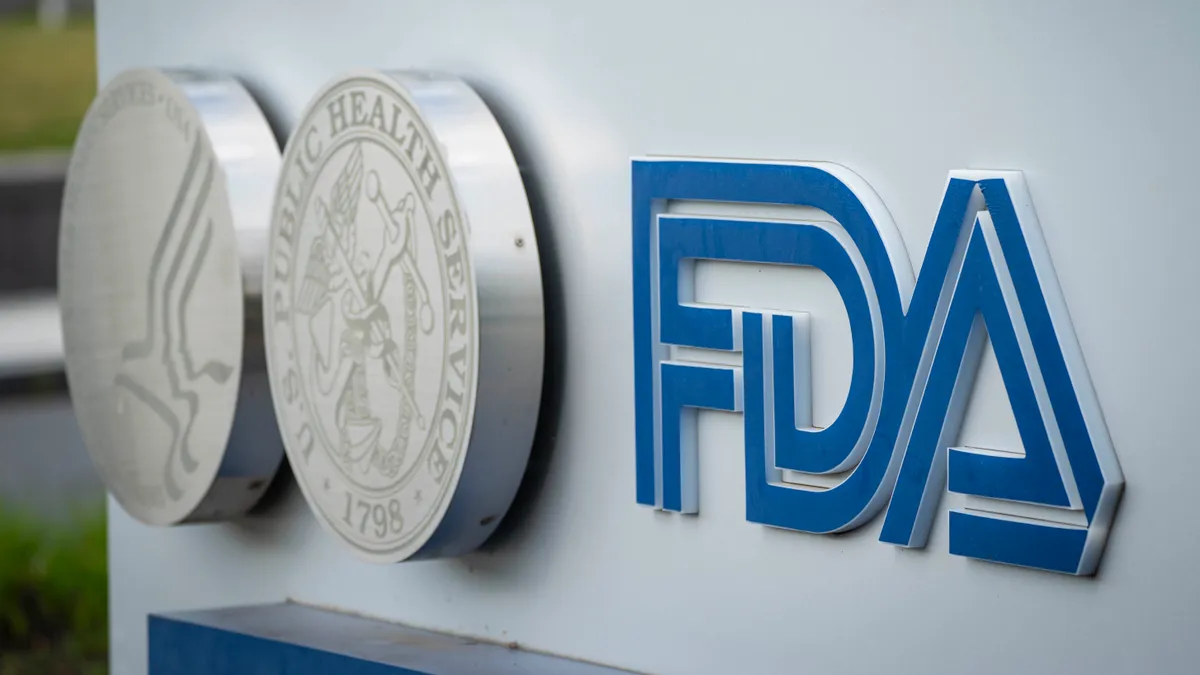Dive Brief:
- The FDA and industry set the terms for the fifth reauthorization of the Medical Device User Fee Amendments (MDUFA V). The agreement, which sets the FDA's performance goals for the next five years and how much industry will pay for product reviews, is expected to bring in a total of $1.78 billion from 2023 to 2027.
- That amount could increase to $1.9 billion if the FDA meets certain performance goals. For instance, the FDA has set hiring targets, which it must meet at least 85% of in 2023 and 90% in 2024.
- The agency plans to hold a public meeting virtually on April 19 to get feedback on the proposal. The final MDUFA V recommendations are slated to go to Congress in April, after the FDA considers public input.
Dive Insight:
Industry groups largely supported MDUFA V, though it took months of contentious talks to reach an agreement. The Medical Imaging and Technology Alliance urged swift passage of the proposal on Wednesday, after the FDA had shared a commitment letter with its goals on Tuesday afternoon.
"Through over a year and a half of negotiations, we have agreed to a good deal for the FDA, industry and most importantly for patients," MITA Executive Director Patrick Hope said in a news release. "The agreement will help get the FDA back on track after several years of grappling with the COVID pandemic and introduces new accountability measures related to hiring targets, accrual and use of carryover balance."
AdvaMed CEO Scott Whitaker also applauded the new performance requirements for the FDA, adding that the agreement would hold innovators to high standards for communicating device performance to the agency.
“The result will be more timely approval of medical technology earning the FDA’s global gold standard of safety and effectiveness,” Whitaker said in an emailed statement. “AdvaMed looks forward to public and congressional consideration of the agreement.”
Earlier this month, MedTech Dive reported that the FDA and industry had reached a consensus, months after the Jan. 15 deadline to send an agreement to Congress. The new agreement includes accountability measures that might have helped win over industry. For instance, the FDA must meet certain hiring targets, and is also limited to 13 weeks of operating reserves in its carryover balance.
Jeff Shuren, director of the FDA's Center for Devices and Radiological Health, said in a news release that the new agreement "represents a substantial investment in the future of the agency's medical device program and would provide for important improvements, including new hiring targets, greater engagement with developers of innovative technologies based on lessons learned from the pandemic, broadened international harmonization efforts and expanded opportunities to ensure patient perspectives are an integral part of medical device development."
This comes as the FDA has struggled to meet its performance targets in recent months, as a significant portion of the agency's resources has been dedicated to the COVID-19 pandemic. The agency met its performance goal for 73% of applications in 2021, falling to a new low against its MDUFA IV target.
For premarket approval submissions received in 2023 and 2024, the FDA has set a goal of 290 days to reach a decision. Starting in 2025, that will shorten to 285 days.
For 510(k) submissions, the FDA has set a goal of 128 days for 2023, shortening to 112 days starting in 2025. The FDA has also committed to communicate if an application has been accepted within 15 days of pre-submission.
As part of the agreement, the FDA set minimum hiring goals for the next three years. If it misses these goals by more than 15% in 2023, or 10% in the following years, then it must adjust its fees accordingly.
For 2023, the FDA plans to hire 144 people. In 2024, it plans to make 42 new hires, and in 2025, it expects to make 24 hires.
The FDA also plans to launch a total product lifecycle advisory program (TAP), which will be funded in part by the agreement. It's intended to enable earlier and more frequent communication between the agency and product sponsors, and make the premarket review process more efficient.
The agency will start with a soft launch of the program next year, starting with 15 products, with plans to gradually scale up to enroll 100 products per year. To start, the FDA will focus on products that have received a breakthrough designation.
This article was updated to include a statement from AdvaMed.
Correction: This article has been updated to correct MDUFA's spelling as Medical Device User Fee Amendments











